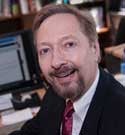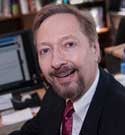 Kingston, R.I. – February 20, 2014 – This week, anti-government protests in Kiev’s Independence Square turned deadly after violent clashes between police and protestors left more than 100 people dead and hundreds injured. As hostilities and tensions continue to grow, what’s next for Ukraine?
Kingston, R.I. – February 20, 2014 – This week, anti-government protests in Kiev’s Independence Square turned deadly after violent clashes between police and protestors left more than 100 people dead and hundreds injured. As hostilities and tensions continue to grow, what’s next for Ukraine?
In this Q&A, we asked URI Political Science Professor Nicolai N. Petro to describe his firsthand observations of the growing political crisis in Ukraine, as well as his thoughts on the country’s future. A scholar of Russian politics and culture, Petro is living in Odessa, Ukraine for a year on a Fulbright grant to study the role of the Russian Orthodox Church.
URI: What have you been observing during your time in Ukraine?
Nicolai Petro: Although the situation in downtown Kiev and in a handful of cities in Western Ukraine is tense, the situation in the south and east of the country is relatively calm. In the west, groups of radicals have stormed and set fire to government buildings. Meanwhile, in the east and south, local governments have organized vigilante militias for self-defense against the radicals. The perception of whether what is happening in Kiev is a coup d’etat or a legitimate popular uprising differs very widely across the country.
URI: After nearly three months of protests, what specifically caused Tuesday’s deadly clashes between police and protestors?
NP: On Tuesday morning, a large number of protestors marched from Independence Square toward the Ukrainian parliament building, which was guarded by riot police, and surrounded it. Meanwhile, another group armed with molotov cocktails, makeshift weapons, and pistols attacked the nearby offices of the country’s ruling party, the Party of Regions. Two office workers were killed and the building was set on fire. Eventually, riot police stepped in to push demonstrators away from both buildings. Throughout the day, they fought the protesters back to Independence Square. By evening, the latter had retrenched and began a prolonged and bloody battle with police on the Square.
URI: What do you think these deadly protests mean for the country now?
NP: It indicates that the official political opposition, which meets regularly with Western diplomats and had agreed to the terms of the presidential amnesty, is not in control of the radical nationalists. Any agreements reached with them are, therefore, likely to be ignored by the street protestors, who will continue their armed struggle. The government, meanwhile, has labeled anyone still promoting violence against the authorities a “terrorist.”
URI: Even after this week’s events, protestors are still willing to stand their ground. Could we see a civil war break out?
NP: While there is a de facto war scene in Kiev, it is unlikely to extend beyond the westernmost regions of the country. The violence that has erupted against government authority is highly localized. In the east and the south, where the majority live, local authorities seem well in control.
URI: Are you somewhere safe in Ukraine right now? Do you think you would still stay in Ukraine if a civil war broke out?
NP: The country’s largest cities, almost all of which are in the east and the south, are still relatively safe. Only downtown Kiev and the administrative buildings in the western provinces have been under attack. If conflict were to spread, I imagine it would do so very slowly — a creeping civil war.
URI: How will the protest affect the United States’ relationship with Russia?
NP: Russia has called for all countries to stay out of the internal affairs of Ukraine. Officials in the United States and Europe, however, feel that it is imperative that they be involved in the process of conflict resolution even, as the leaked conversation between Assistant Secretary of State Victoria Nuland and the U.S. Ambassador to Ukraine (Geoffrey R. Pyatt) suggests, to the point of recommending members for a new Ukrainian government. This is a very significant difference in approach that leads to tensions. Tensions are further compounded by the fact that while Russia has cultural, religious, and economic ties with Ukraine that go back centuries, the United States has almost no influence in the country. It is a classic mismatch of resources and ambitions, which is likely to lead to further misunderstanding.
Petro is available for telephone interviews to talk about Ukraine’s growing political unrest. He can be reached at 011-380508302381. His Skype address is nicolaipetro. Please keep in mind that there is a 7-hour plus time difference in Ukraine and the Eastern United States.
For more information, contact Elizabeth Rau in the URI Marketing & Communications Department at elizabeth_rau@uri.edu.

